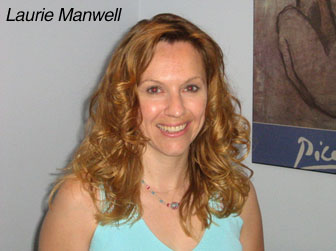Laurie Manwell publishes "Part II" (overcoming psychological barriers to 9/11 Truth) in the Journal of 9/11 Studies

Following her widely-read paper on overcoming psychological barriers to 9/11 Truth acceptance, Laurie Manwell has “Part II” published in the Journal of 9/11 Studies today.
A reviewer wrote: “It is an excellent -- (and the first real attempt from anybody really) -- effort to address the concerns related to human personality variables, multiple disciplines, logic and the vagaries of persuasion associated with discussing the truth. And not just 9/11 truth but truth globally and the means to search for the truth. Hoping to create many little epiphanies in those with whom we communicate.
"I especially liked your personalization towards the end where you speak about your fears and concerns .... and the children. And the future they face if we do not act. [I worry much about the children. And I worry about other life that shares this planet.]
"In sum, the article is a cornucopia of thought and discussion and covers very cogently most of the many issues and concerns we face. I thought it coherent and well-presented, that it is very logical with points following each other in a sensible manner. But, as importantly, in a very revealing manner from which I learned a great deal. Thanks for the compassion and effort.”
Enjoy Laurie’s latest 9/11 article here: http://journalof911studies.com/volume/2007/ManwellFaultyTowersofBeliefPartII.pdf
| Attachment | Size |
|---|---|
| manwell.jpg | 48.61 KB |
- ProfJones's blog
- Login to post comments

This particular excerpt from
This particular excerpt from Manwell's paper struck me.
"In a culture of fear, we should expect the rise of new mechanisms of social control to deflect distrust, anxiety, and threat… Our findings suggest that authors use the conspiracy theorist label as (1) a routinized strategy of exclusion; (2) a reframing mechanism that deflects questions or concerns about power, corruption, and motive; and (3) an attack upon the personhood and competence of the questioner. This label becomes dangerous machinery at the transpersonal levels of media and academic discourse, symbolically stripping the claimant of the status of reasonable interlocutor – often to avoid the need to account for one’s own action or speech. We argue that this and similar mechanisms simultaneously control the flow of information and symbolically demobilize certain voices and issues in public discourse…Variants of the label conspiracy theorist become dangerous. The mechanism allows those who use it to sidestep sound scholarly and journalistic practice, avoiding the examination of evidence, often in favor of one of the most important errors in logic and rhetoric – the ad hominem attack. [italics added]"
Can you say the History Channel?
I also thought
the sentence you quoted was incredibly well-written and absolutedly spot on. The accusation of 'conspiracy theorist" reflects on the accuser (and damns him/her) not the accused.
Quote
Just to clarify, that quote is actually from the paper by Husting and Orr (2007) which is an excellent paper on the use of "conspiracy theory/theorist" as a mechanism to exclude people from public debate. There are several important papers I reviewed and hope that people find them interesting and helpful. Laurie :)
AMERICANS ARE IN PAIN, By Carolyn Baker
Reminds me a lot of this story, published Aug. 21st, 2007.
http://carolynbaker.net/site/index2.php?option=com_content&task=view&id=...
AMERICANS ARE IN PAIN, By Carolyn Baker